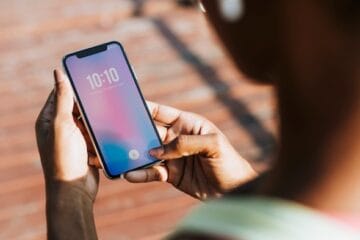Taking a look back at another week of news from Cupertino, this week’s Apple Loop includes problems with the iPhone battery, iOS bugs and updates, pricing thoughts for the iPhone 8, iOS market share details, Apple Watch sales figures, the upcoming macOS release, Netflix dominating the App Store, and a new way to translate on your smartphone.
Apple Loop is here to remind you of a few of the very many discussions that have happened around Apple over the last seven days (and you can read our weekly digest of Android news here on Forbes).
The Impact Of The Thirty Percent Battery Bug
It has taken some time, but Apple has started to acknowledge that the battery issue affecting ‘a small number of handsets’ (see Apple Loop previously) is more widespread than a small batch of machines. Apple is being careful to keep its language moderate, but there are signs that the ‘thirty percent battery bug’ is affecting more than just the 6S:
But the twist is Apple has still not fully fronted up to the situation. Its statement does nothing to specifically state the problems extend beyond the iPhone 6S (the only model it has named to date), when multiple sources in the thread above as well as social media and even a tweet from Apple executive and ‘father of the iPod’ Tony Fadell have confirmed cases involving different models.
Forbes’ Gordon Kelly looks over the impact and potential scale of the bug.

Apple iPhone 7 (image: Ewan Spence)
More Issues With The iPhone 7
While the iPhone 7 and iPhone 7 Plus do not appear to be affected by the thirty percent issue, another issue has come to light this week over the newest handsets locking up:
Once again credit goes to users on Apple’s official Support Communities website who have done a sterling job in bringing the issue to light. Having contacted me directly, one affected user drew my attention to problems the iPhone 7 currently has making calls due to the Phone app repeatedly freezing.
Reports of this problem are all over the Support Communities forum and predominantly feature the iPhone 7, though some iPhone 6S and 5S models are affected too.
More details here. The hope is that an iOS update will address the issue but Apple has yet to formally acknowledge the flaw.
iPhone 8 Pricing
Although the presumptively titled iPhone 8 is not expected to be in stores until late September 2017, details of the pricing around both the iPhone 7S and 7S Plus (which will echo the current design), and the radical changes in the iPhone 8 have been discussed this week. The new iPhones will follow the lead of the 2016 generation of the MacBook Pro line-up and see prices rise at the top end, and the base models to lose functionality while maintaining then ‘entry-level’ pricing:
Those already struggling to justify the cost of owning an iPhone should probably look away now, because the iPhone 7S and iPhone 7S Plus are expected to retain the current price points of the iPhone 7 and iPhone 7 Plus ($649 – $969), while the iPhone 8 will sit above them both as the new flagship.
It’s pure speculation to say by how much, but with the Plus model currently $129 more at each storage capacity it would seem a $150-200 premium on top of the Plus would make sense and once again increase Apple margins – which have shrunk in recent years.
More discussion on this here at Forbes.

Apple’s iPhone 7 and iPhone 7 Plus (image: Apple PR)
iOS Market Share Grows
Meanwhile the iOS platform continues to comfortably grow. Kantar Worldpanel’s look at the mobile market share for the three months ending in October 2016 hands iOS a 40.5 percent share in the US market, 44 percent in the United Kingdom, and a majority 51.7 percent of the Japanese market. Jack Purcher has more details:
In the US, iOS grew 7% year-over-year, from 33.5% of smartphone sales to 40.5% in the three months ending October 2016. This represents the strongest rate of growth for the OS in more than two years, as well as the highest share seen since the three months ending January 2015 (42.8%).
The report further noted that while Android remains the dominant OS in the US, at 57.9% of smartphone sales, this latest Android data represents the 5th consecutive year-on-year period decline.
[Source:-Forbes]




